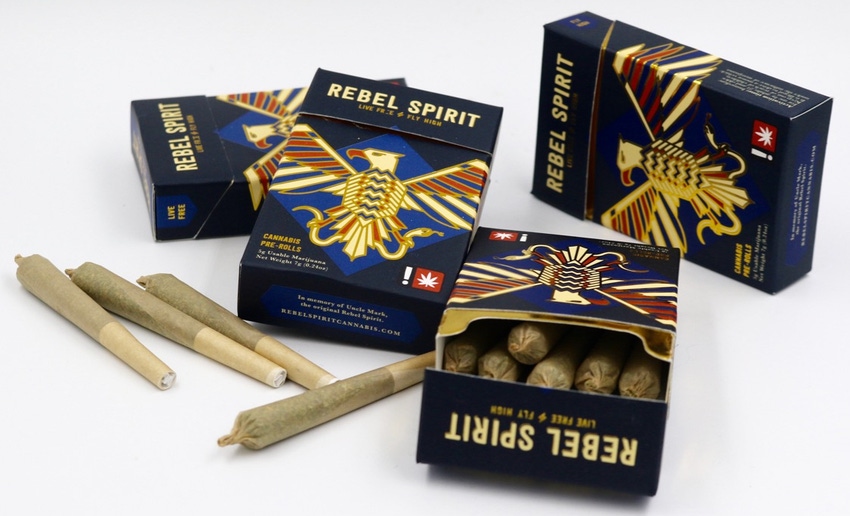Cannabis Packaging: The Way to the Millennial’s Heart is Through a Cause

Look at some of the emotional and social drivers that make Millennial consumers such a great fit for cannabis, and at how marketing and package design can deliver the kind of experience that will ensure long lasting loyalty and growth.
In a scene from Harold and Kumar Go to White Castle, the friends are high while watching a TV commercial about two teenage stoners. In the spot, one kid is persuaded by his friend to try pot for the first time. After taking a hit, the kid proceeds to stick a gun in his mouth, claiming “Nothing can hurt me!” The fictional commercial ends with a dire warning, “Pot Kills.” Harold and Kumar giggle and start looking for a place to eat.
As they say, “you’ve come a long way baby.” “Pot Kills” is a far cry from the current status of cannabis. Rather than warning about “reefer madness,” the government sees pot as a way to generate tax dollars — and the culture welcomes it as a form of intoxication less dangerous than alcohol or hard drugs.
Perhaps no group looks forward to its legalization more than Millennials. According to the Quinnipiac University Poll, 85% of voters ages 18-34 are in favor of this move, while only 44% of boomers feel the same way. Here is a product the younger crowd resoundingly endorses. But how do you market to them?
Let’s look at some of the emotional and social drivers that make Millennial consumers such a great fit for cannabis, and at how marketing and package design can deliver the kind of experience that will ensure long lasting loyalty and growth.
A potent form of cause marketing.
Marketers have been nervous about reaching Millennials ever since this group became the most sought-after audience in consumer history. Younger people seem like mysterious creatures who display a curious trait: They actually want brands to stand for something, aside from a good deal or quick buck. They demand capitalism with a conscience.
This trait gives cannabis marketing and packaging a distinct advantage. Many cannabis brands want to be thought of as something more than just a great high. The product itself integrates naturally with a whole host of causes.
There are brands that support the fight against mass incarceration. Others promote green farming practices. The product can also plausibly be connected to campaigns against, say, domestic violence — as cannabis seems relatively harmless, when compared with alcohol and hard drugs and their role in abusive behavior.
Says Millennial market expert Brad Szollose, “Ask any police officer, when was the last time he or she locked up someone who was using pot. Doesn’t happen. But when you ask them about violence in people who use coke or alcohol, they’ll say it happens all the time.”
Best of all, these causes are intrinsically related to the product; there’s nothing forced about making the connection. This lends cannabis marketing a claim to authenticity, a trait said to be treasured by the younger crowd. And this can touch on a range of issues, such as where the plant was grown, how it’s packaged, the ingredients, and the communities that are being helped by this emerging business.
When the connection between the cause and the product is real, it allows cannabis brands to tell a compelling story that avoids clichés and the feeling of being manufactured. Says Szollose, “Millennials can be a tough crowd. They can’t be bought with virtue signaling, such as ‘Look how good we are.’ The cause has to be relatable and verifiable.”
Marketers and package designers are already hip to the connection between cannabis and the causes it supports. Here are three salient examples…
1. Marley Natural — champion of social justice.
Among the many popular causes this brand supports, Defy Ventures aims to redress problems caused by mass incarceration. Since 2015, more than 100 companies have been started by Defy’s entrepreneurs-in-training (EITs). The program teaches job readiness, entrepreneurship, technology basics, and personal finance and development to incarcerated men and women.
As is fitting for a high-profile brand connected to Bob Marley’s legend, the country of Jamaica is a focus of much of their cause work. Projects include support of sustainable fishing, teaching farming techniques to students, and restoration of Rastafari cultural sites and traditions.
As stated on its website, Marley Natural aligns “…with causes that reflect Bob Marley’s vision of positive social change, environmental sustainability and social justice.” Appropriately, the brand’s label features the iconic Rastafarian Lion of Juda.
2. Rebel Spirit — promoting the virtues of being green.
Rebel Spirit takes inspiration from the founder’s Uncle Mark, an early pot grower who died in prison in the 1990s. The brand concentrates its message around environmental responsibility — all packaging is reusable and recyclable. The company uses rainwater and well-water to grow crops and recycle it to prevent waste.
3. A cut above.
One California brand is making sustainability the centerpiece of its entire business — from how it grows the plant, all the way to its biodiverse packaging. Above Cannabis features packaging sourced primarily within the United States. What sets it apart? The boxes are produced using wind energy and non-toxic vegetable dies for printing. Child-resistant tubes are made of hemp plastic.
How does this score with younger consumers?
The commitment to social responsibility has helped brands like Marley Natural, Rebel Spirit, and Above Cannabis establish a secure foothold in their respective markets. Marley is in two states: California and Washington. As stated in Leafbuyer, “Millennial consumers control $200 billion in buying power and are 90% more likely to buy a product that benefits society and the environment. Not only will they be more likely to purchase from you, but they’ll feel good about doing it even if it means they have to spend more.”
About the Author(s)
You May Also Like




